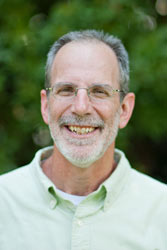“peevish” is me-ish
Last Sunday, on my way to the COVID policy-compliant church service, I realized that I’d forgotten my mask. Oh bother, I thought (with a less-than-compliant attitude), now I’ll have to find an alternative or go home to get mine. Fortunately my wife had an extra, but without the little wire thingy to mold it around the bridge of your nose. Each time I spoke or sang, my glasses fogged up. I grumbled, Effective aerosol containment, huh?
I readjusted it and settled in to my practiced church-service-rhythm. It was all going along fine until we read the Confession of Sin from a book of Puritan prayers. Normally, my rhythm carries me through unscathed. But this morning, I encountered a word I didn’t expect. Here’s the line from the confession with the unexpected word in bold:
Pardon all my sins of this day, week, year,
sins of early, middle, and advanced years,
of omission (love not done)
and commission (harm surely done),
of depressed and peevish tempers,
of lip, life and walk…
I was just mumbling along, minding my own business and then this word—peevish—cuts through my complacency. I mouthed the rest of the confession, but peevish stuck in my brain. I expected words like omission and commission, etc., but peevish tempers?
Well, I thought, it’s just an unexpected word, that’s what you’re feeling. Just seems odd in a Puritan prayer. A curiosity, that’s all.
I tuned back into the service, rejoining the congregation reciting the Confession of Faith: “the communion of the saints and the forgiveness of sins. . .”
But peevish was still in my head: What does that even mean? When we sat down after the creed I covertly looked it up on my phone. Maybe a definition will put this curiosity to bed and I can move on.
peev·ish /ˈpēviSH/ adjective:
- easily irritated, especially by unimportant things.
Well, first of all, I can’t readily picture peeved Puritans, but if they need to confess it, fine. But no, this is not me. I’m not irritable. Especially about small things. Certainly not.
By this time, we were standing again and singing, “I once was blind but now I see.”
I mean, peevish, that just sounds so childish.
Then I remembered complaining about my mask earlier that morning. I hadn’t said anything out loud (at least I don’t think I did). I tried to “mask” it, but I was clearly irritated. And then again with the fogged glasses problem. Ok, I thought, so I was a little irritated. But that doesn’t mean I’m peevish. Does it? I was willing to take on irritated but not peevish. It just sounded so… so… not attractive. I tried to forget about it.
God, however, wasn’t ready to let me go. At this point, we began the Pastoral Prayer. The prayer was addressing big things: racial and economic injustice, a pandemic, job struggles, friends with health crises. I compared those to my fogged-up glasses problem and the definition of peevish came back to me: “easily irritated, especially by unimportant things.”
At this point, I surrendered. I took my mask off (the spiritual one) and admitted it: peevish is me-ish.
I admit that the definition fits me. It fit that morning and it fits in general. I’m peevish. Moreover, my sin isn’t isolated to a peevish incident here and there. I am prone to this. Call it a peevish temperament. Ouch, that’s hard to admit. I’d like to claim that my irritable moods are merely a product of the pandemic stress. I’ve only been this way since the stress hit. Of course, the current stressful situation does irritate my irritability, but it doesn’t create it. C.S. Lewis once compared sin to roaches. You flick the light on and you see them, but the light doesn’t cause the roaches, it merely exposes them. This Sunday morning, the word peevish was a light that caught my roaches out in the open.
Now why am I writing a public confession? It’s not because peevishness is my greatest sin (it isn’t), but I want to illustrate that confession is the greatest relief. When we confess, we take our mask off and breath freely.
That’s what happened to me Sunday morning. I fought the confession at first, but once God led me to repentance, I was glad. It’s all counterintuitive. Initially, the urge to hide feels like it will bring relief. In contrast, confession feels like it will bring a sort of smothering death. But the opposite is true. Hiding brings death and confession brings the breath of life.
Honestly, I’ve experienced many times before, but I forget it. More likely, I repress it.
Of course, this is the whole point of placing a confession of sin in weekly worship. It’s so we won’t forget. We won’t forget the problem that brought us to Christ, nor will we forget the loving forgiveness that brought Christ to us. Confession of sin is there so we won’t smother ourselves under layers of masks. Confession of sin is there so that we can breathe grace freely and deeply.
Here’s the whole text – in case you want to practice.
Confession of Sin
–From “Sins,” The Valley of Vision
Merciful Lord,
pardon all my sins of this day, week, year,
sins of early, middle, and advanced years,
of omission (love not done)
and commission (harm surely done),
of depressed and peevish tempers,
of lip, life and walk,
of hard-heartedness, unbelief, presumption, pride.
Forgive my sins of want of bold decision
in the cause of Christ,
and of deception, injustice,
untruthfulness with others.
Forgive sins in private and in the family,
in study and recreation, in the busy haunts of men,
in the study of your Word and in the neglect of it,
in prayer irreverently offered and coldly withheld.
Pardon all my sins, known and unknown,
felt and unfelt, confessed and not confessed,
remembered or forgotten.
Good Lord, hear; and hearing, forgive.
Amen.

Roger Edwards joined The Barnabas Center in 1991. He works with both individuals and couples, helping people confess their need and embrace their available choices to lead healthier lives. Roger also teaches and leads discussion groups and retreats applying the Gospel to everyday life. He is a licensed clinical mental health counselor (LCMHC), holds a master’s degree in biblical counseling from Grace Theological Seminary in Indiana and a bachelor’s degree in engineering from the University of North Carolina at Charlotte. He is married to Jean; they have seven children and nine grandchildren.








